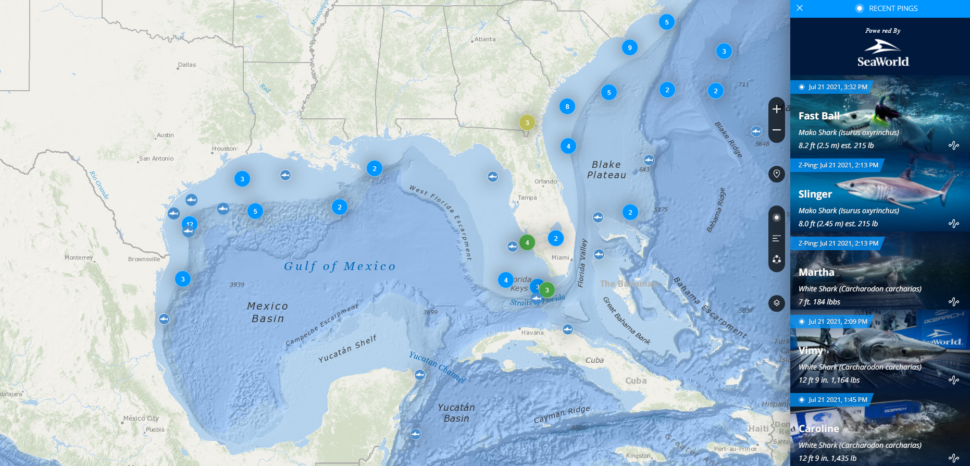Headed to the beach? This tracker shows you where sharks are lurking

The last thing that you want when swimming in the ocean is something unidentified brushing up against you. For most people, the immediate thought would go to a shark. Encounters are somewhat rare, but it’s terrifying, nonetheless.
In the last decade, there were 799 unprovoked shark attacks, of which less than 7% were fatal. In the U.S., there were only 33 unprovoked attacks last year, of which three were fatal. Your chances of an attack are one in 11.5 million, with a fatal attack being one in 264 million.
But that doesn’t make going to the beach or swimming in the ocean less scary. Humans, by nature, are wary of what we can’t see, and sharks are masters of ambushing. Luckily you don’t have to guess where you’ll have the best odds this summer. There’s a tracker that can help.
Here’s the backstory
Part awareness system and part research tool, Ocearch developed an online tool that assists with tracking marine life for scientific study and research. Spanning the globe, every tag inserted is displayed on the map.
Through 39 expeditions, the organization has managed to tag 416 creatures. The first version of their shark tracker was launched in 2012 with the vision that everybody should have real-time access to the data.
The collected data has revealed some interesting aspects over the years. Last year the Ocearch team found that a tagged tiger shark had swum 4,000 miles from the coast of Mozambique to Indonesia in the span of two years.
“We had no idea a shark from Mozambique would end up off the coast of Indonesia. Sereia now has the longest confirmed migration for the species on record,” the team explained in a press statement.
How to use the tracker
For any marine animal to show up on the tracking map, they need to be tagged. The team can’t tag all sharks out there, so keep in mind that only a fraction of the oceanic predators is tracked on the map.

You can choose which animals you want to see through the map and filters on the right-hand side. By default, all are displayed, but you can filter to show only sharks, alligators, dolphins, seals or turtles.
For localized results, you can filter by the location the animal was tagged, like off the coast of Corpus Christi, Texas or Fort Lauderdale, Florida. If you live in Georgia, you can keep track of the three alligators Audrey, Cypress and Sally.

But naturally, sharks make up the majority of the tagged and tracked animals. The website is currently keeping tabs on 324 Great White, Mako, Tiger and Whale sharks, to name a few. Clicking on an animal, you can see details like the age, where it has been and when it was tagged.
Keep reading
8 hidden maps and trackers you need to switch off
Hawaii diver swims with record-breaking largest great white shark
Tags: animals, filters, Ocean, online, research, sharks, tracking
